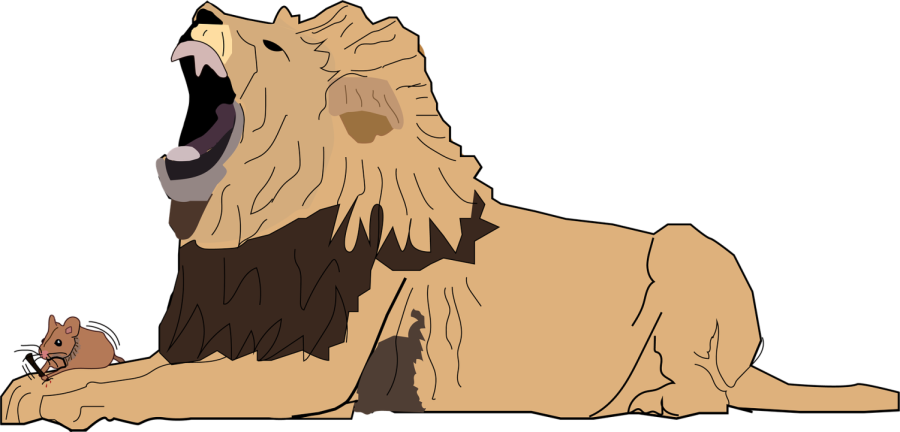Always treat people with kindness
One of the best examples of kindness can be found in Aesop’s fables!
“No act of kindness, no matter how small, is ever wasted.” This is the moral, or overall meaning, that can be gathered from Aesop’s fable The Lion and The Mouse. Possibly his most influential fable, The Lion and the Mouse bears undeniably timeless qualities. Its message has withstood the test of time, something many stories tend to fail. In an ever-changing society, it seems almost impossible to create something that can be referred back to after so many years. However, The Lion and the Mouse remains a staple in children’s literature.
This story follows the evolution of a relationship between, hence the title, a lion and a mouse. Initially, the Mouse is captured and pleads for the Lion’s mercy, begging that in return it’ll return the act. Pitying the Mouse, the Lion obliges, not expecting this promise to come to fruition. Later, the Lion is tangled in a hunter’s net, at the mercy of the Mouse. The Mouse repays the Lion, chewing through the trap.
From an analytical perspective, one can observe what these characters represent. The lion, regarded as one of the most powerful land animals, is known to be dominant. In contrast, a mouse is synonymous with being weak and meek. Putting the mouse in a position where the lion’s life is dependent on its decisions highlights the moral of the story. The unsuspecting heroic action of the mouse shows the fruits of the lion’s kindness.
Still, kindness is not prioritized. Jim Borden, a blogger, recognizes this and shared his ideas in his article “No Act of Kindness, No Matter How Small, is Ever Wasted”. In this article, he focuses on the way our lives can be improved if we implement this moral into our lives. He stresses how kindness is crucial in the development of healthy and successful children. He states, “Boys who are rated as helpful by their kindergarten teacher earn more money 30 years later.” (jborden.com) This shows the long-term benefits of generosity. Notably, he also says, “Middle-school students who help, cooperate, and share with their peers also excel—compared with unhelpful classmates, they get better grades and standardized test scores.” This evidence supports the notion that a child who is kind is likely to succeed in school, which can transfer into their adult lives.
Borden draws the conclusion that Aesop’s story of the Lion and the Mouse is scientifically proven to improve our lives and those of our younger generation, therefore our future.

Hi! My name is Melissa Martinez and I am a sophomore at Armijo High School. I was born in Walnut Creek, CA but moved to Suisun City just before my second...



